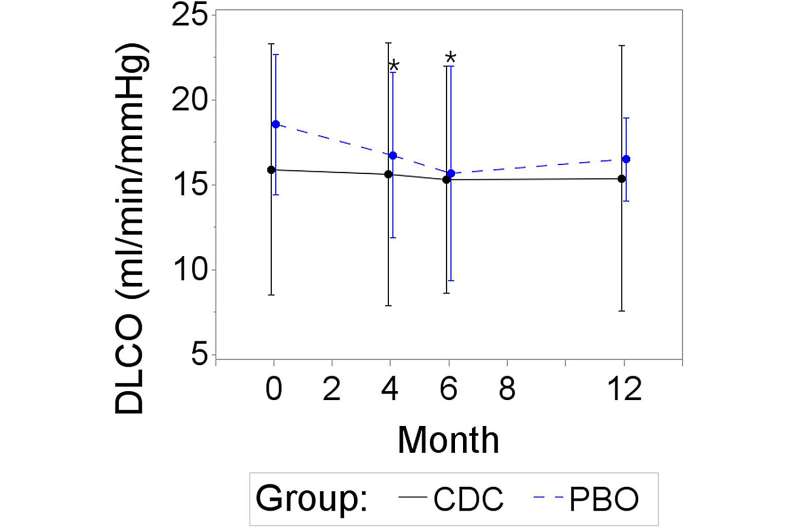This article has been reviewed according to Science X's editorial process and policies. Editors have highlighted the following attributes while ensuring the content's credibility:
fact-checked
peer-reviewed publication
trusted source
proofread
Unique cell-based approach for pulmonary arterial hypertension shown to be safe

Infusions of potentially therapeutic cells derived from the heart are safe for people with pulmonary arterial hypertension, a form of high blood pressure that occurs in the blood vessels of the lungs and typically affects middle-aged women, according to a study led by Cedars-Sinai investigators.
The Phase I clinical trial results are published in eBioMedicine.
"Although several drugs are approved for pulmonary arterial hypertension, mortality remains high," said Eduardo Marbán, MD, Ph.D., executive director of the Smidt Heart Institute at Cedars-Sinai, the Mark S. Siegel Family Foundation Distinguished Professor and senior author of the study. "We tried a fundamentally different approach—cell therapy delivered into the pulmonary artery—and found encouraging results in patients already on combination conventional therapy."
Pulmonary arterial hypertension is a rare disease, affecting fewer than 100 people per million. There currently is no cure, and the average median life expectancy on treatment for most patients is roughly 6.2 years after diagnosis.
Currently approved medications for the condition aim to open up blood vessels in the lungs, allowing for better blood flow; however, studies on lungs in patients on treatment still show severe occlusive vessel changes.
Further, these medications don't address many of the complex underlying mechanisms that cause the high pulmonary pressures. Even on medication, people with pulmonary arterial hypertension can develop severe dysfunction in the right ventricle of the heart, the part that pumps blood to the lungs and whose function correlates best with survival.
Cedars-Sinai investigators are experimenting with using cardiosphere-derived cells (CDCs) to address some of the biological processes involved in pulmonary arterial hypertension. CDCs were first developed and characterized by Marbán. They have been used in multiple clinical trials for a variety of diseases, most recently Duchenne muscular dystrophy. These are cells derived from human heart tissue that Marbán and colleagues have discovered reduce inflammation in the body and exert beneficial effects on the immune system.
Called the ALPHA study, this clinical trial was conducted in two phases. In the first, six people with pulmonary arterial hypertension received an infusion of CDCs into their lungs. Three patients received an infusion of 50 million CDCs, and the other three received an infusion of 100 million CDCs.
In the second phase, ten people with pulmonary arterial hypertension were randomized to receive an infusion of 100 million CDCs, and ten people were randomized to receive infusions containing a placebo. Investigators performed right heart catheterization and cardiac MR imaging on each study participant before the infusions and four months after the infusions.
All the participants were on combination pulmonary arterial hypertension-specific medications throughout the course of the study.
The investigators tracked the health of participants for 12 months after the infusions. No adverse effects related to the infusions occurred during this time. Although this study was only designed to assess the safety of the CDC infusions, the investigators observed encouraging changes that might indicate the 16 people who had received the CDC infusions had improved cardiopulmonary health.
People who received the infusions, for example, showed improved functioning in the heart's right ventricle and, at two months post-infusion, were able to walk a greater distance during a six-minute test than people who received placebo.
"The most important takeaway is that this approach is safe and feasible to do in people with pulmonary arterial hypertension," said Michael I. Lewis, MD, director of Respiratory Care Services at Cedars-Sinai, and first and corresponding author of the study. "These are encouraging exploratory findings that motivate moving on to more advanced studies."
The investigators plan additional trials to study the effects of repeated infusions of CDCs given to people with pulmonary arterial hypertension.
More information: Michael I. Lewis et al, The ALPHA phase 1 study: pulmonary ArteriaL hypertension treated with CardiosPHere-Derived allogeneic stem cells, eBioMedicine (2023). DOI: 10.1016/j.ebiom.2023.104900





















